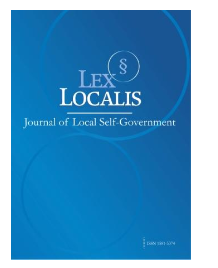BEYOND TECHNOLOGICAL OPTIMISM: A CRITICAL REVIEW OF INDUSTRY 4.0’S IMPLICATIONS FOR SMES, LABOR, SUSTAINABILITY, AND GOVERNANCE
DOI:
https://doi.org/10.52152/801923Keywords:
Industry 4.0, Fourth Industrial Revolution, digital transformation, SMEs, managerial decision-making, sustainability, labor markets, policy and governanceAbstract
The Fourth Industrial Revolution, also referred to as Industry 4.0, is a paradigm shift in production, management, industrial growth and economic order that has been influenced by the development of new technologies such as the Internet of Things (IoT), artificial intelligence (AI), robotics, and big data analytics. This review systematically attempts to reflect on the recent academic literature (2021–2025) to explore the effects of Industry 4.0 on the managerial decision-making process, labor markets, sustainability, and long-term competitiveness. Through the evaluation of more than fifteen peer-reviewed journal articles, the paper can synthesize the insights that were made into the readiness of small- and medium-sized enterprises (SMEs), the efficacy of maturity models and adoption frameworks, and the theoretical basis behind the digital transformation research that includes resource-based view, dynamic capabilities, and institutional theory. Although most of the literature is focused on productivity increase, reduction in costs, and supply chain resilience, some contradictions have been identified around labor replacement, skills gaps, and increasing digital divide, especially in the developing economies. Sustainability and ethical issues are also mentioned in the review, as Industry 4.0 has a dual potential of cutting down on waste and emissions and increasing concerns regarding energy usage, e-waste, and data privacy. It is identified that policy and governance are the most important facilitators, and inclusive digital policies and global collaboration are required to create equitable change. The paper ends by outlining major gaps, such as the lack of longitudinal studies, the lack of balance in indicators of readiness, and research in other areas of manufacturing. The research in the future needs to take an interdisciplinary approach to comprehensively capture the socioeconomic and environmental impacts of Industry 4.0. The reflection is to be added to the continuous discussion by striking a balance between technological optimism and critical awareness of the issue of attaining inclusive, sustainable, and strategic adoption of Industry 4.0.
Downloads
Published
Issue
Section
License
Copyright (c) 2025 Lex localis - Journal of Local Self-Government

This work is licensed under a Creative Commons Attribution-NonCommercial-NoDerivatives 4.0 International License.








